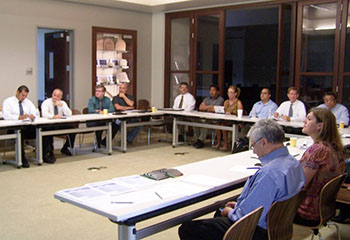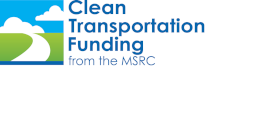 This year’s work program is on track to be one of the most exciting yet – everything from the traditional infrastructure and heavy duty vehicle projects to revitalized projects like electric vehicle infrastructure and bikeshare programs are eligible for funding.
This year’s work program is on track to be one of the most exciting yet – everything from the traditional infrastructure and heavy duty vehicle projects to revitalized projects like electric vehicle infrastructure and bikeshare programs are eligible for funding.
Last September, the MSRC held four county-wide workshops where nearly 80 public agency and private sector representatives had the opportunity to provide their input on the types of projects for which they would like to see MSRC funding available in the future. The MSRC’s Technical Advisory Committee (TAC) and the MSRC considered this feedback when developing this year’s Work Program categories, which is one of the reasons the MSRC decided to bring back some previous project categories and revamp them so they meet the current needs of local communities.
In total, the 2011-2012 Work Program has more than $26 million in Clean Transportation Funding available. “This year’s Work Program offers the largest amount of funding for clean air projects in recent memory,” said Greg Winterbottom, Chair of the MSRC. “We valued the input of the workshop attendees and integrated their recommendations into the Work Program development process, which is why the Work Program is full of new and refreshed project ideas. We hope that the broad spectrum of eligible projects will provide something for everyone.”
For example, several government agency stakeholders requested that the MSRC consider funding for electric vehicle infrastructure to support the EVs now on the roadways and the expected expansion of these vehicles in the marketplace. As a result, the MSRC is offering up to $500,000 per entity to install public electric vehicle charging infrastructure under the Local Government Match Program. Other projects eligible under the $6.5 million Local Government Match Program include new alternative fuel stations, upgrades and expansion of existing stations, existing maintenance facility upgrades, mobile hydrogen refueling, street sweeping in the Coachella Valley, and heavy- and medium-duty alternative fuel vehicles. Several stakeholders at the workshops recommended that the MSRC provide funding for medium-duty alternative fuel vehicles, spurring the MSRC to add this as a new project category this year.
Many workshop participants also requested that the MSRC continue to support or revisit transportation demand management programs, particularly bicycling-related projects. The MSRC has responded with a $5.5 million Transportation Control Measures (TCM) Program with six TCM project categories available for funding, including $1 million for a regional bikeshare program designed to provide assistance to bikesharing ventures to purchase bicycles and supporting infrastructure. The TAC currently is working to design this program.
Additionally, the TCM Program has funding available for event center transportation services for large venues not sufficiently served by public transportation, for research on multi-mobility hubs to explore new opportunities and the role the MSRC can play in developing multi-mobility hub services (particularly commute-end transportation options), and incentives and public awareness campaigns for ridesharing.
The Vehicle and Advanced Technologies Program offers more than $9.5 million in funding for vehicle retrofits, replacements and technology demonstration. As suggested by some stakeholders, the program provides funding for the replacement of medium-duty vehicles, as well as incentives to purchase CNG taxi cabs to get older cabs off the road more quickly. The “Showcase III” program also falls under this program category, which provides funding to retrofit off-road heavy duty vehicles to demonstrate new technology to clean up dirty diesel construction equipment. Other projects funded under this program include on-road heavy-duty vehicle replacement and repowers, the purchase of new CNG school buses and repowers for older CNG school buses to extend the lives of these vehicles, and a demonstration of the Cummins 11.9L advanced natural gas engine in anticipation of a full ARB certification.
The final program category is the $4.8 million Infrastructure Program, which provides funding for CNG fueling stations and facility modifications. The MSRC is offering two new opportunities under this program – an incentive of up to 50 percent of maintenance facility modification costs, not to exceed $75,000, and a $100,000 station funding bonus for facilities where more than 50 percent of the natural gas comes from renewable sources. Another new program element is that funding will be available for Phill™ CNG home refueling units. The MSRC also is considering funding for electric vehicle home recharging units, although this program element is still under development.
The project solicitations will be available soon on the MSRC’s website at http://www.CleanTransportationFunding.org. Interested applicants can sign up here to join the e-mail list to be notified as soon as they are available.
